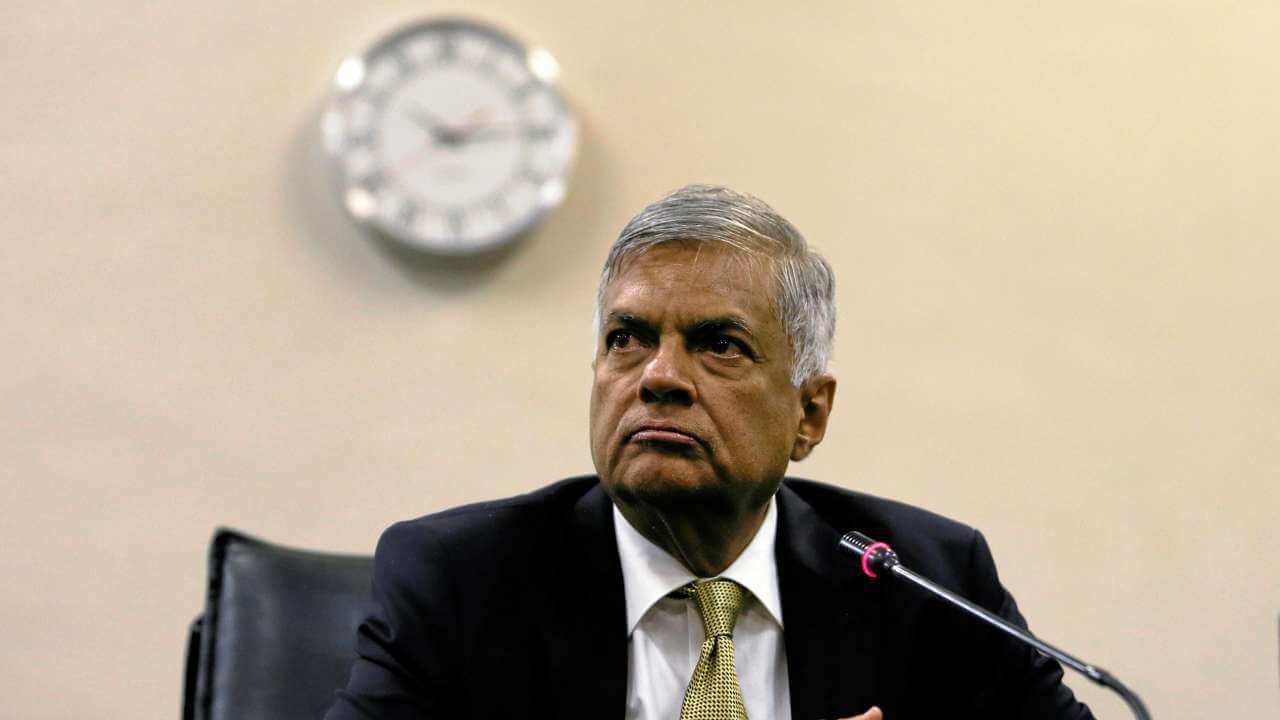Sri Lankan Prime Minister (PM) Ranil Wickremesinghe said that he is open to going back to Russia to mitigate the ongoing fuel crisis. However, he said that Sri Lanka would purchase oil from other sources if possible.
In an exclusive interview with Associated Press, the Sri Lankan PM highlighted that the main struggle is that “there is a lot of oil going around which can be sourced back informally to Iran or to Russia,” both of which are subject to heavy Western sanctions.
India govt extends a Line of Credit (LOC) of US$ 55 million to Sri Lanka for procurement of Urea Fertiliser: Statement pic.twitter.com/Yx6CoB4En7
— Sidhant Sibal (@sidhant) June 11, 2022
However, he remarked that Sri Lanka is looking to ensure that its “main supply” of oil is brought in from the Gulf, for which he may turn to China for financial assistance, given that the Asian giant working to restructure Sri Lanka’s debt. He said, “This means they all have to agree [on] how the cuts are to take place and in what manner they should take place.”
Experts, however, have attributed a heavy portion of Sri Lanka’s foreign reserve and food, fuel, and medicine shortages to its mounting debt to China, given that it procured loans at high interest rates. In fact, Colombo has already defaulted on $7 billion of its $51 billion of foreign debt.
#China will provide emergency humanitarian assistance worth 500 million RMB for #SriLanka. The first delivery of medicine has arrived, and the first shipment of rice has left China for Sri Lanka. pic.twitter.com/haT9MBSGZX
— Lijian Zhao 赵立坚 (@zlj517) June 12, 2022
Wickremesinghe’s predecessor, Mahinda Rajapaksa, and his brother and current President, Gotabaya Rajapaksa, have been accused of taking massive loans from China for extravagant infrastructure projects. On this issue, Wickremesinghe said, “We need to identify what are the projects that we need for economic recovery and take loans for those projects, whether it be from China or from others… It’s a question of where do we deploy the resources?”
Discussing the economic crisis, he stressed that while it is Sri Lanka’s “own making,” the Ukraine war and the resultant food and oil shortages have made the situation worse and accelerated the country’s “economic contraction.”
Hungry and angry citizens on the hunt for corrupt politicians. Sri Lanka has lacked food, medicine, electricity and petrol for over a month. Coming soon to Europe. pic.twitter.com/j1XOx753X3
— RadioGenova (@RadioGenova) June 10, 2022
Wickremesinghe highlighted that food prices have surged by over 300% while rice cultivation has fallen by more than 33%. In this regard, he revealed that Russia has offered to provide wheat.
The Russia-Ukraine war has also resulted in a surge in oil prices, with several Western nations moving toward an oil embargo. Russia, in response, has offered heavily discounted oil to countries such as India and Sri Lanka.
In fact, Sri Lanka purchased 90,000 metric tonnes of crude oil from Russia for $72.9 million last month, allowing it to restart its only oil refinery. Furthermore, in light of the hours-long lines outside gas stations, the government announced a “guaranteed weekly quota” starting in July, thereby addressing concerns about citizens hoarding fuel for machines and generators. Sri Lanka has also sought assistance from the World Food Programme and the International Monetary Fund (IMF). However, even if the IMF programme is approved, it would only be accessible from October.
3) We have no choice but to register consumers at filling stations and give them a guaranteed weekly quota until we are able to strengthen the financial situation, restore 24 Hour Power and a steady Supply of fuel. I hope to have this system in place by the 1st week of July.
— Kanchana Wijesekera (@kanchana_wij) June 12, 2022
Last week, Wickremesinghe said that the country needs at least $5 billion over the coming six months to purchase basic items such as food, fuel, and fertilisers. He noted that only India has been providing financial assistance.
Keeping this in mind, he said in the AP interview that food shortages could continue for another two years, and warned that it could become even worse by the end of the year as more and more countries begin to place heavy restrictions on food exports.

